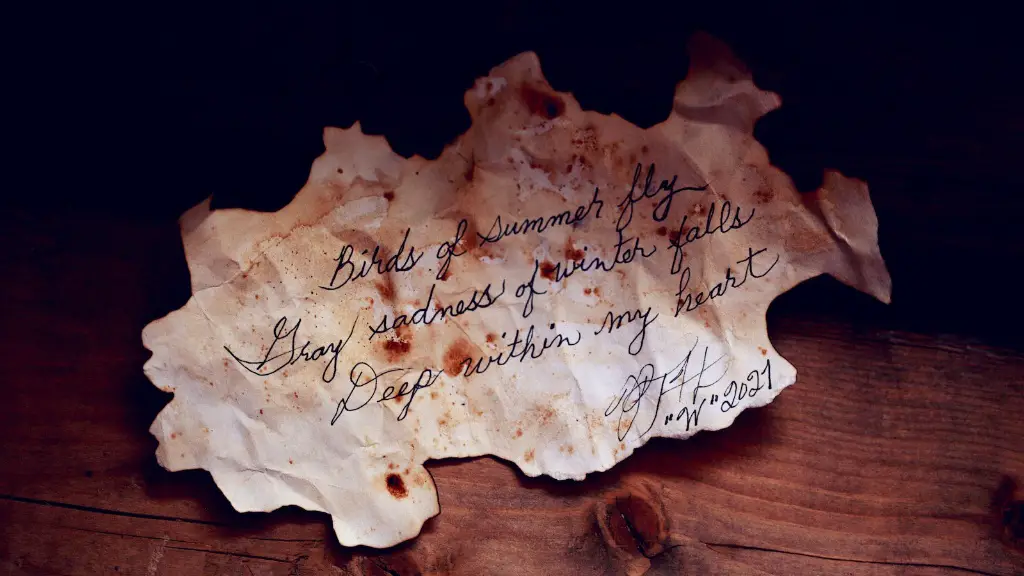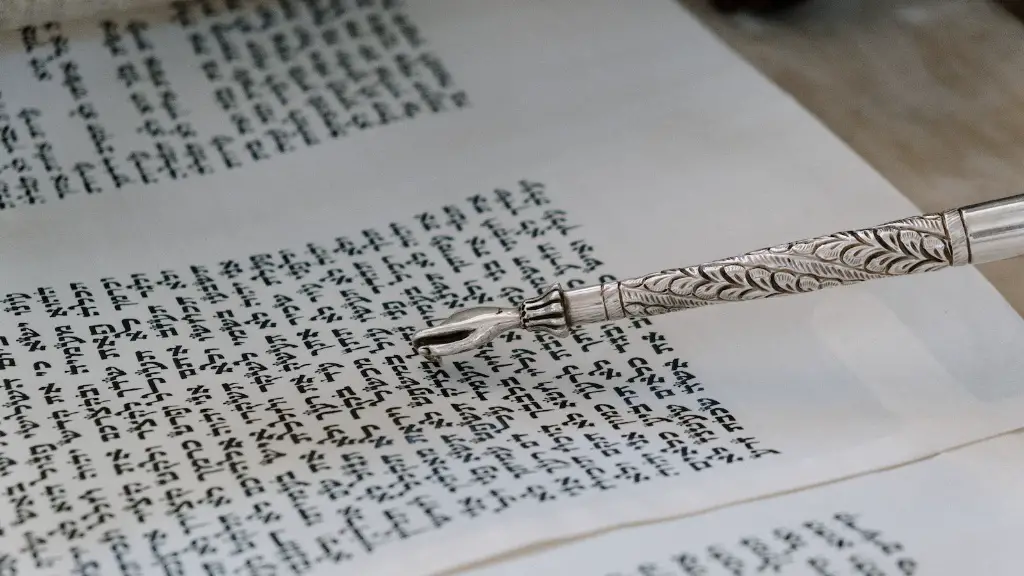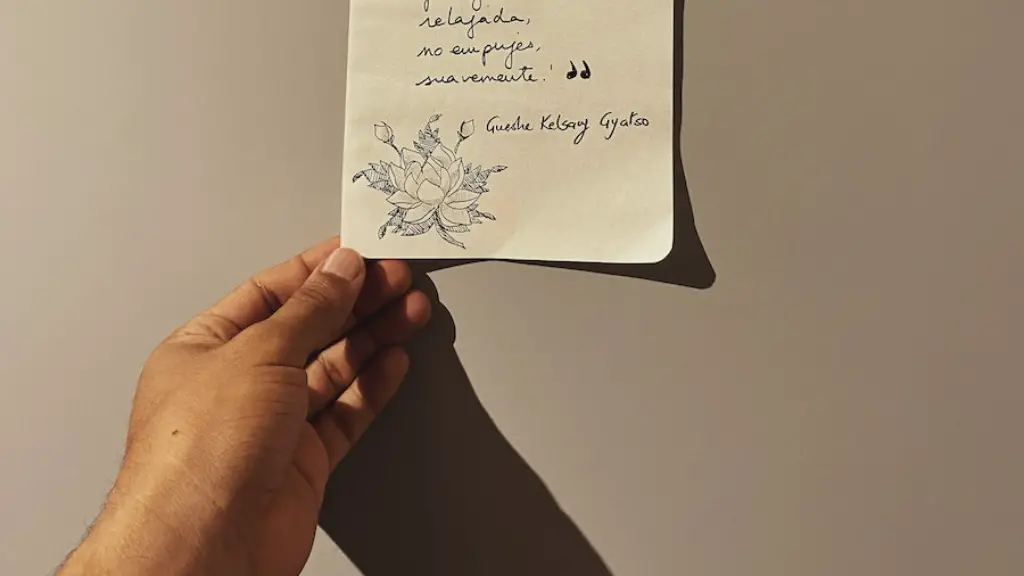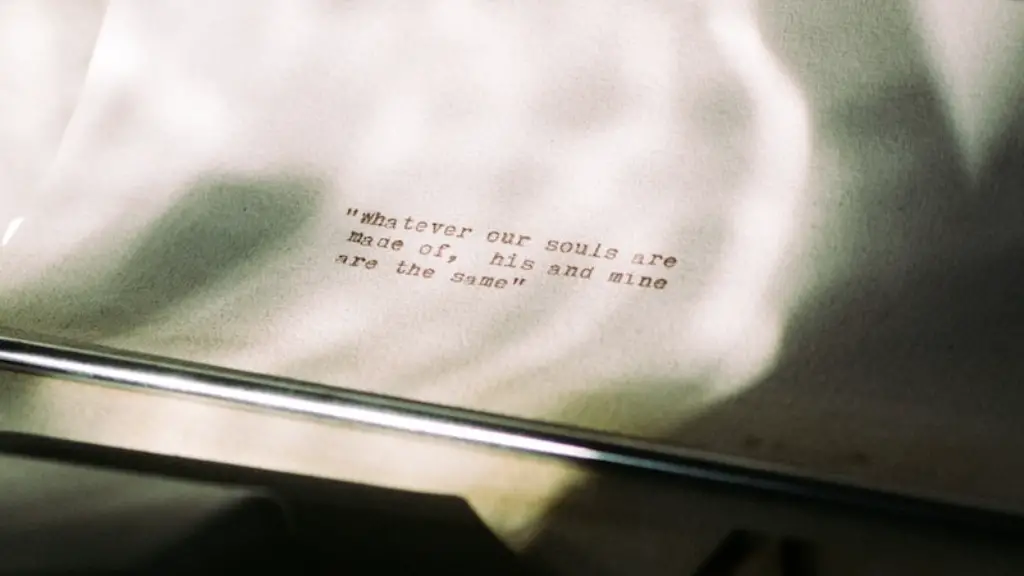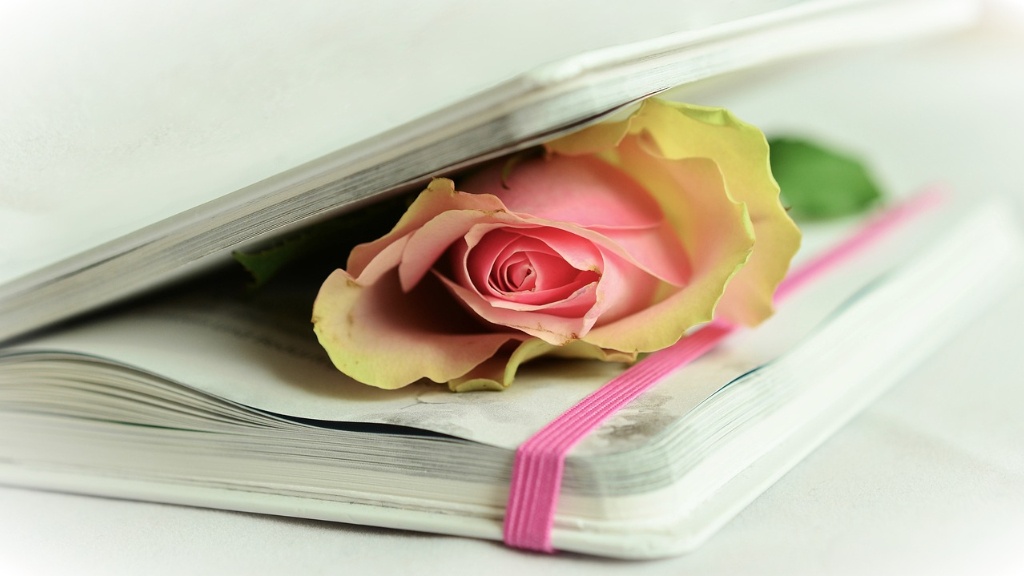Definition of Poetry
Poetry is a genre that has been around for centuries. It is a form of art that is written out with words, rhythm and sound. It is different from other genres because it is not simply about narration, the words often contain more than one meaning and link together. Poetry challenges its readers to think deeper and interpret its words. It has the potential to be both powerful and insightful, offering new perspectives of looking at life and human experience.
Versatility of Poetry
The versatility of poetry is one of its most distinguishing features when compared to other genres. Poetry can be funny, sad, angry, or even lighthearted and inspirational. It can tell stories, or express ideologies. It can make arguments or convey a political or social message. Poetry can be used to explore and express emotions in ways that other genres cannot. By reading it, readers can gain a deeper understanding of issues and problems, as well as be moved emotionally by the experiences of the writer.
Forms of Poetry
At its core, poetry is defined as using words to create a mental image. This image can come in many forms, such as narrative poetry, haiku poems, sonnets, ballads and lyrical poems. These are all examples of different forms of poetry that share their own specific characteristics. For example, haikus are limited to three lines and often focus on nature; sonnets are fourteen lines and usually focus on love; and lyrical poems are often written in verse and often focus on personal experiences. Regardless of the form, each of these styles of poetry can express different ideas in unique and impactful ways.
Rhythm
Rhythm is an essential part of what makes poetry different from other genres. Poetry is written in lines and the length of the lines creates a rhythm. This rhythm can be established in many ways such as varying the length of the lines, adding pauses, or changing the pattern of the words. This rhythm can affect the overall tone and feelings of a poem. For example, a sad poem may have a slower, more drawn-out rhythm, and a happy poem may have a faster, more upbeat rhythm.
Imagery
When writing and reading poetry, the author and reader try to create a mental image of what is being said. Poetry often uses imagery, which is the use of words to create a visual image. By using imagery, authors of poetry can take readers on a journey and make them feel the emotions of the poem. For example, a poem about a scenic mountain may use phrases like “the sun blazes through the peaks” or “misty shapes move through the clouds,” creating a vivid mental image.
Abstract Language
Poetry also differs from other genres of writing by the use of abstract language and symbolism. Instead of explaining things in a straightforward manner, poetry often takes a roundabout way and uses symbols, metaphors, and figurative language. This form of communication allows for readers to interpret the poem in different ways and think differently about life. It forces readers to look beyond the surface and think about the deeper meaning of the words, creating an opportunity for insight and growth.
Subjects of Poetry
The subjects of poetry can range anywhere from nature to relationships to political issues. By tackling different subjects, poetry has the ability to influence people in different ways. It may inspire, inform, educate, and move people to take action. It allows writers to approach issues that may be difficult to talk about in a more poetic and beautiful way, adding a unique perspective.
Performance Art
The performance aspect of poetry is another element that makes it stand out from other genres. It allows the poem to be brought to life on stage or in any space. Poetry slams, open mic night, and other forms of spoken word are popular forms of performance art. Seeing a poem and hearing someone perform it can add a whole new level of emotion and experience for both the performer and the audience.
Conclusion of Poetry
Poetry is a timeless art form that has been used throughout the centuries. It is a genre that is distinct from others due to its ability to be versatile, use rhythm and imagery, use abstract language, and discuss different subject matters. It can also be used as a form of performance art that engages readers and brings life to words. Poetry is something that anyone can appreciate and relate to, making it unique when compared to other genres.
Purpose of Poetry
At its core, poetry serves the purpose of allowing people to express emotions and ideas in a creative way. It is a tool that can be used to document history, tell stories, make arguments, explore feelings, and provide new perspectives on any subject. By reading poetry, readers can gain insight and understanding of issues and can challenge their own ways of thinking.
Writing Poetry
Poetry requires skill and creativity. There is no one way to write a poem and it can take many forms. Writing poetry is a process of exploration and discovery, allowing the writer to find their own style and voices.When writing poetry, writers should remember to make their words meaningful, to think about their own ideas and perspectives, and to allow their voices to be heard through their words.
Learning Poetry
Learning about poetry can be done in many ways. For example, reading and analyzing poems written by other authors can provide insight into how poetry works. Also, attending poetry readings and workshops is a great way to broaden one’s understanding of the genre. In addition, trying to write poetry is a great way to gain a better understanding, as it requires thinking outside the box and engaging with the written words.
Interpretation of Poetry
The interpretation of poetry is unique and individual. Everyone reads and interprets a poem differently based on their own experiences and perspectives. Poetry allows readers to find their own meaning, making it a powerful tool of understanding. By reading poetry, readers can find connections, uncover new ideas, and gain a deeper understanding of life and the world.
Political Poetry
Poetry has the potential to be an incredibly powerful tool for social and political change. By using words to express an idea, create emotion, and portray an issue, poetry can be used to challenge the status quo and bring about awareness to a certain issue. For example, in times of political unrest, poets often use their words to create a movement and evoke change.
Modern Poetry
Modern poetry has continued to evolve and transform as technology has become increasingly more prevalent in society. With the rise of social media, we have been exposed to more types of poetry than ever before. Platforms like Instagram and Youtube have allowed poets to reach a larger audience, share their work, and gain recognition. Modern poetry no longer has to be confined to books and can be found in many new forms.
Cultural Impact of Poetry
Poetry has been around since the dawn of time, and it has had a lasting impact on our culture. For example, it has allowed us to explore emotions and ideas in ways that would have been impossible before. Poetry has been used as a tool for healing, connecting with others, and expressing difficult emotions. It allows us to reflect on our lives and gain a better understanding of the world around us.
